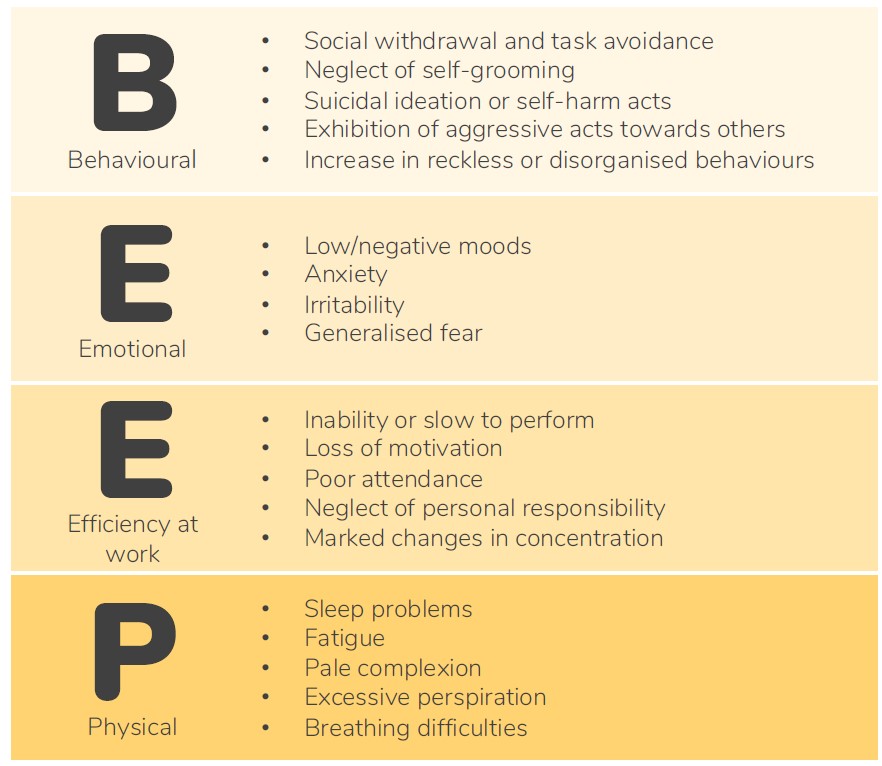Tips for Supporting Colleagues
Identifying Distressed Colleagues
From time to time, we may encounter stressful challenges during our course of work as emergency responders or in supporting the organisation. While some stress can motivate us to achieve our goals, too much stress (i.e., distress) can be overwhelming and hinder daily functioning.
There are 4 general types of distress: Behavioural, Emotional, Efficiency at work, and Physical (the acronym of B-E-E-P) and it is important that we recognise the warning signs of distress and respond with appropriate support.
What are some signs that our colleagues are in distress?
 Note: This is a non-exhaustive list, and different individuals may exhibit different symptoms. These reactions are also normal responses to the nature of our duties as emergency responders or supporting the organisation.
Note: This is a non-exhaustive list, and different individuals may exhibit different symptoms. These reactions are also normal responses to the nature of our duties as emergency responders or supporting the organisation.
Helping Our Colleagues
Following the identification of distressed colleagues, you are strongly encouraged to engage them to gain a better understanding of their concerns and render appropriate assistance.
Here are 5 steps to help your colleagues: Attending, Listening, Effective Questioning, Referral, and Timely Intervention (A-L-E-R-T)
.png)
.png)
.png)
Referral and Counselling
If you feel that your colleague’s signs and symptoms of distress are not going away, or if you have any other concerns, counselling is an option to consider.

Support Options
It is normal to feel that seeking support can be viewed by others as being ‘weak’ or not up to the expectations of an emergency responder. However, you and your colleagues need to take care of yourselves before you can take care of others as an emergency responder or in supporting the organisation.
In addition to SCDF’s counselling support, there are various in-house and external resources that are available for you to refer your colleagues to. Click here for an overview of the support options available.
[You have come to the last page of the section on Being a Resilient Responder. Check out the other section on Managing Operational Stress!]
References
- Horan, K. A., Marks, M., Ruiz, J., Bowers, C., & Cunningham, A. (2021). Here for My Peer: The Future of First Responder Mental Health. International journal of environmental research and public health, 18(21), 11097. https://doi.org/10.3390/ijerph182111097
- Substance Abuse and Mental Health Services Administration. (n.d.). First Responders and Disaster Responders Resource Portal. Retrieved March 1, 2023, from https://www.samhsa.gov/dtac/disaster-responders

